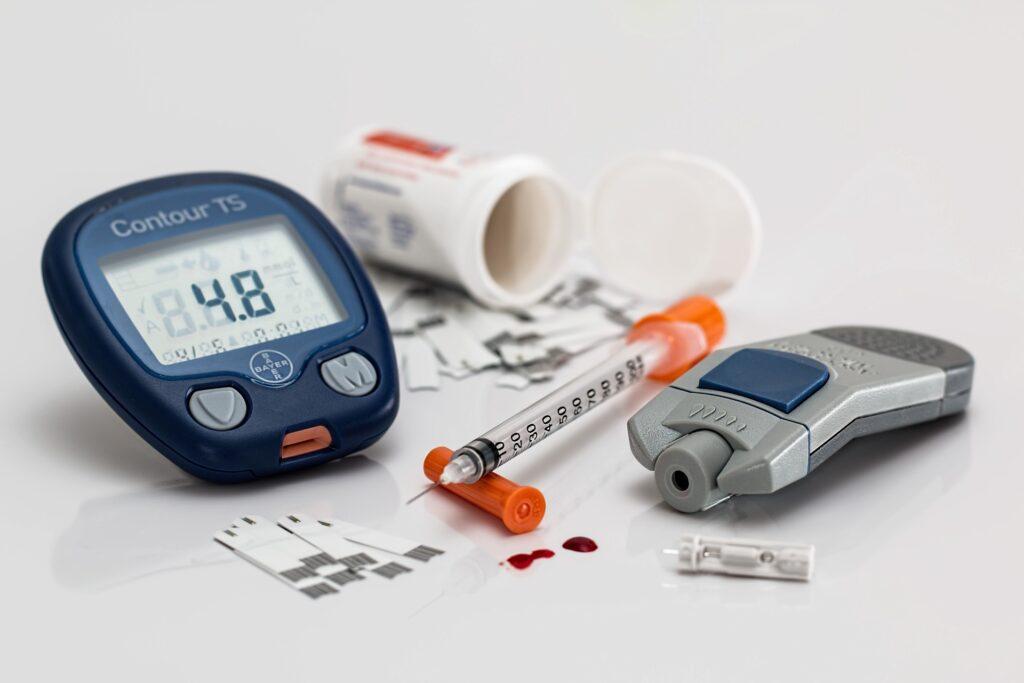
Why Does A Lack Of Sleep Cause Weight Gain?
Getting enough sleep is as important as watching what we eat and working out if we want to maintain a healthy weight.
Lack of sleep may have negative effects on several aspects of our life, but one we may overlook is our physical appearance. However, it is well-known that sleeping too little increases the likelihood of gaining weight and becoming obese.
We can all relate to the feelings of tiredness that accompany the occasional inability to get a good night’s sleep. This is why it’s common practice to give up on plans the next morning.
Do you ever wake up after a restless night and think to yourself:
- Since I’m so tired, I just don’t have the energy to go to the gym. It’s possible that some other time will be better.
- I really wanted to put in some effort to cook a healthy meal today, but I just can’t get the energy. In order to get going again, I’ll need some coffee and cookies.
- So, you’re aware of the plans I had for today, right? No hurry; it can wait. I need a lazy day at home.
- What I want to eat is going to be served to me.
Identify any of the above. It’s easy to see how all of that feedback may add up to an impact on your physique over time.

Reduced motivation to work out and finish chores is a direct result of insufficient sleep. To put it simply, we make poor dietary choices and choose high-sugar or high-fat options over those that are better for us.
But how may sleep deprivation cause us to choose dessert over healthy options?
Each and every one of your inquiries have been thoroughly investigated, and we have even talked with scientists and biologists on the subject.
Learn how your body and mind react to a lack of sleep.
Lose sleep, put on weight.
Several studies demonstrate that the likelihood of gaining weight is much increased if we get less sleep. Recent research has shown that those who don’t get enough sleep are more likely to have the following symptoms:
- A lot more calories were taken in by them.
- Instead of healthy foods, they opted for fatty ones.
- The amount of energy they used was consistent.
Another research analyzed data from over 170 individuals who experienced partial sleep deprivation; the results showed that even one night of poor sleep led to a 385-calorie increase in daily calorie consumption the following day.
Though individuals did consume more calories when sleep-deprived, they did not expend any more energy than usual. When this pattern lasts for a few days, it leads to weight gain. It’s true that even a little increase in caloric intake (by 200 calories per day) may lead to noticeable weight gain.
One pound of fat has 3,500 calories, so that gives you some idea. This means that if you eat like a sleep-deprived person, you may gain a pound in fewer than 10 days of sleep deprivation. A rise of around three pounds each year is feasible.
It also seems that the times at which we eat are crucial. Persons who are “night owls,” or those whose levels of activity peak late in the day and who remain in bed later than others, are also more prone to acquire weight, according to separate research. Later sleepers consume around 250 more calories per day than “normal” sleepers, according to the research. They also ate more fast food and fewer fruits and vegetables.

Why, therefore, do we prefer high-calorie meals when we are exhausted?
It’s possible that a sleep-deprived caveman might benefit from having more energy to remain alert. In the modern world, however, when calorie-dense food is abundant and dangerous creatures are rare, this strategy has backfired.
Sleep and weight growth are two complex topics, and there is still much to understand about the particular processes controlling both. However, several studies show that sleep deprivation alters biochemical processes in the brain and body, as well as everyday behavior. We can see this in the different components if we look closely enough:
- The brain’s ability to exert willpower is reduced
- The brain’s pleasure and reward systems are amplified
- Feelings of fullness are reduced by a low amount of leptin in the body
- Sensations of hunger are amplified when ghrelin levels are high
- Decreased propensity to work out
- A greater propensity to do nothing
While it’s easier to identify the various repercussions when they’re broken down into above mentioned three discrete categories, in practice, they all interact. The body communicates with the brain through chemical signals. Our unique responses are the consequence of the brain’s analysis of these signals.

Let’s take the conversation up a notch. how our bodies and minds react to lack of sleep, and how it might have a bad influence on our obesity rates.
Why fatigue delivers mixed messages (in terms of hormones).
Hormones are chemical compounds that act as signal transducers, moving information from one part of the body to another. A lot of our hormones are affected by not getting enough sleep, and this is one of the main reasons why sleep deprivation causes weight gain.
Diabeties & Sleep are Interlinked
It's also been shown that sleep deprivation might have an effect on insulin, another crucial hormone. Type 2 diabetes occurs when the body stops responding normally to insulin. When we think of insulin, its primary role in regulating blood sugar levels immediately comes to mind. Although its importance in controlling our body fat is well-known, few people realize how important it is in other areas.
The release of insulin tells our cells to take up sugar, which they subsequently utilize for energy. On the other hand, it signals cells to start making fat that the body can then store. When insulin levels rise, the body stores more fat.
Fat cells in persons who often go without sleep have been shown to be less responsive to insulin.
Fat cells of healthy people who were sleep-deprived in a laboratory environment showed characteristics of type 2 diabetes. A lack of sleep, even for one night, has been linked to increased insulin resistance, and another research revealed that going without sleep for three weeks increased the risk of developing prediabetes.

Insufficient Sleep May Affect Brain Function
It’s well knowledge that sleep deprivation may significantly affect brain functioning. The effects of sleep deprivation on the brain have been the subject of many studies. That is to say, we lose control and have an increased need for gratifying experiences.
Brain scans are often utilized in studies comparing the responses of a well-rested brain to a sleep-deprived brain to sights or foods. These investigations can tell us precisely which regions of the brain are more active in those who are sleep deprived.
Sleep helps
- Memory
- Focus
- Poor-solving
- Choices
- Discipline
The inability to make complicated judgments, control one’s impulses, and have strong willpower are all negatively impacted by a lack of sleep in this region.
To what extent does sleep influence emotions?
One brain imaging research split its subjects into two categories: good sleepers and bad sleepers. The latter made it impossible to get any shut-eye from the first minute of one day to the first minute of the next (just under 32 hours without sleep).
Subjects who hadn’t had enough sleep were far more inclined to rate the images as positive than those who did. Indicators of increased activity in regions of the brain associated with pleasure and reward corroborated this.






